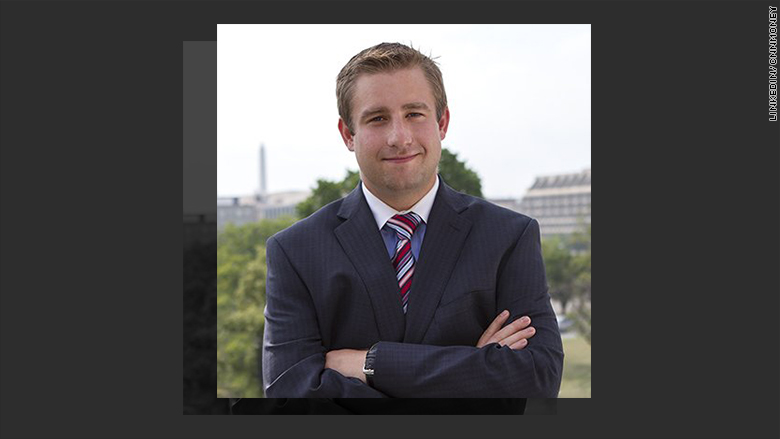I tend to agree with Dershowitz on obstruction and the President, at least when it comes to the exercise of Constitutionally granted powers. The President, of course, can still be criminally liable for obstruction if he kills a witness, heh. But, if he's managing his own house (the massive Executive Branch) or granting a pardon, I really don't think so.
Anyway, I certainly think he has more credibility than, say, the laughably partisan Toobin.
More specifically, this is Obstruction: https://www.law.cornell.edu/uscode/t...t-I/chapter-73 One can look through the statute, but this the provision that conceivably applies: https://www.law.cornell.edu/uscode/text/18/1510 (obstruction of criminal investigations).
Obstruction hinges on obstructing discovery of a criminal transgression. You cannot be criminally liable for obstructing the discovery of non-criminal transgressions. If you lie to the FBI about cheating on your wife then that's just perjury, not obstruction. (*Side note, I loathe the emerge criminal investigation technique of pinning perjury charges on folks for unrelated, non-substantive answers to investigators*)
So, there is no obstruction without the underlying predicate crime to obstruct. That's not going to be collusion. It could be financial. But the obstruction stuff is bootstrapping -- you have to establish the crime first. That's STILL the key issue. The more folks start talking obstruction the more I think they have nothing on the predicate.
Part (a) is absolutely fucking false. Feel free to read through the sunsetted law (https://www.law.cornell.edu/uscode/t...-II/chapter-40) and tell me anywhere in that statute that says a crime MUST be found.
The former statute basically gave the AG discretion to institute preliminary investigations. If they found something that warranted further investigation then they would pass it off to the Independent Counsel. If the AG determined there was no need to investigate further, that was it. Dead. If the AG thought an investigation was proper or let the time lapse, then they shipped it off the a 3-judge panel from the DC Circuit to appoint an Independent Counsel.
The IC then conducted the investigation. Critically, the IC was not subject to removal by the AG except for ridiculously obvious cause -- hence, they were independent. The IC was required to "cooperate" with oversight from Congress and to provide an annual report to Congress on the the IC's efforts (as well as send periodic reports to both the 3-judge panel to mostly justify expenses (govt is finnicky about spending taxpayer money). The IC also had to inform Congress *IF* there were impeachable offenses.
So, first off -- millen's argument to distinguish Clinton/DJT that crimes "MUST" be found versus no such requirement for Mueller is demonstrably false. So, the only really distinction is Congressional oversight or not. I happen to think that could be an important distinction. It certainly implicates separation of powers.
That said, in practice, what happened? Clinton -- CLINTON instituted the process and had Reno review Whitewater (and if Clinton had said, nah, don't bother, Janet -- that would NOT have been obstruction, IMO). They appointed an IC and then that IC was replaced for a conflict of interest by the DC Circuit. That IC then ran roughshod. In this particularly case, the mechanics are almost identical.
Anyway, I certainly think he has more credibility than, say, the laughably partisan Toobin.
More specifically, this is Obstruction: https://www.law.cornell.edu/uscode/t...t-I/chapter-73 One can look through the statute, but this the provision that conceivably applies: https://www.law.cornell.edu/uscode/text/18/1510 (obstruction of criminal investigations).
Obstruction hinges on obstructing discovery of a criminal transgression. You cannot be criminally liable for obstructing the discovery of non-criminal transgressions. If you lie to the FBI about cheating on your wife then that's just perjury, not obstruction. (*Side note, I loathe the emerge criminal investigation technique of pinning perjury charges on folks for unrelated, non-substantive answers to investigators*)
So, there is no obstruction without the underlying predicate crime to obstruct. That's not going to be collusion. It could be financial. But the obstruction stuff is bootstrapping -- you have to establish the crime first. That's STILL the key issue. The more folks start talking obstruction the more I think they have nothing on the predicate.
* The Clinton investigation was authorized by congressional statute, which means...
a. A crime must be found
b. Investigator is subject to political and/or congressional oversight
a. A crime must be found
b. Investigator is subject to political and/or congressional oversight
The former statute basically gave the AG discretion to institute preliminary investigations. If they found something that warranted further investigation then they would pass it off to the Independent Counsel. If the AG determined there was no need to investigate further, that was it. Dead. If the AG thought an investigation was proper or let the time lapse, then they shipped it off the a 3-judge panel from the DC Circuit to appoint an Independent Counsel.
The IC then conducted the investigation. Critically, the IC was not subject to removal by the AG except for ridiculously obvious cause -- hence, they were independent. The IC was required to "cooperate" with oversight from Congress and to provide an annual report to Congress on the the IC's efforts (as well as send periodic reports to both the 3-judge panel to mostly justify expenses (govt is finnicky about spending taxpayer money). The IC also had to inform Congress *IF* there were impeachable offenses.
So, first off -- millen's argument to distinguish Clinton/DJT that crimes "MUST" be found versus no such requirement for Mueller is demonstrably false. So, the only really distinction is Congressional oversight or not. I happen to think that could be an important distinction. It certainly implicates separation of powers.
That said, in practice, what happened? Clinton -- CLINTON instituted the process and had Reno review Whitewater (and if Clinton had said, nah, don't bother, Janet -- that would NOT have been obstruction, IMO). They appointed an IC and then that IC was replaced for a conflict of interest by the DC Circuit. That IC then ran roughshod. In this particularly case, the mechanics are almost identical.


Comment